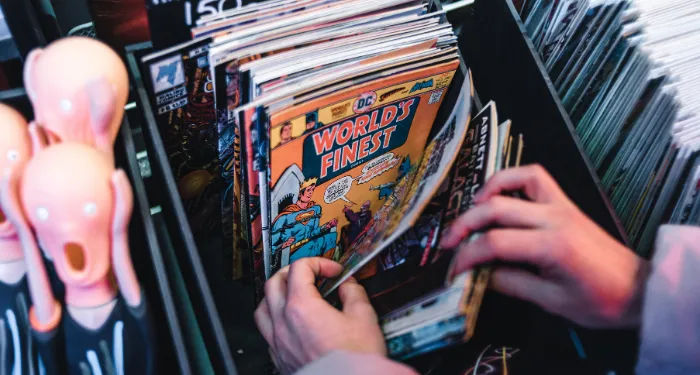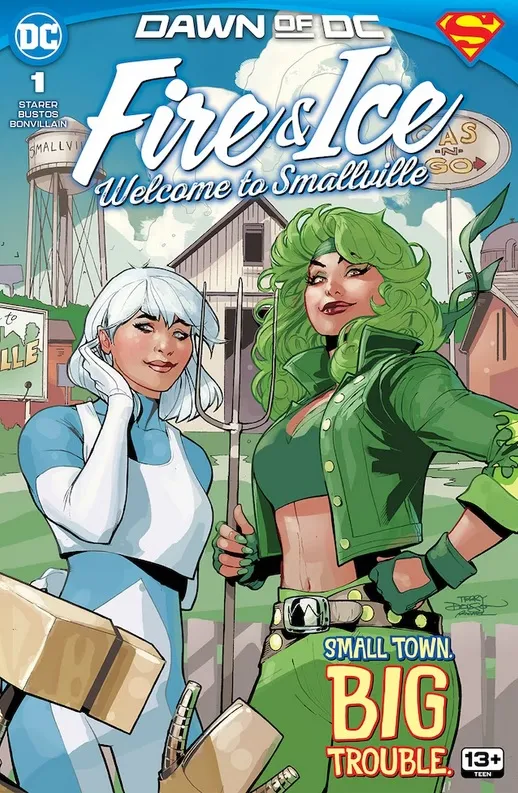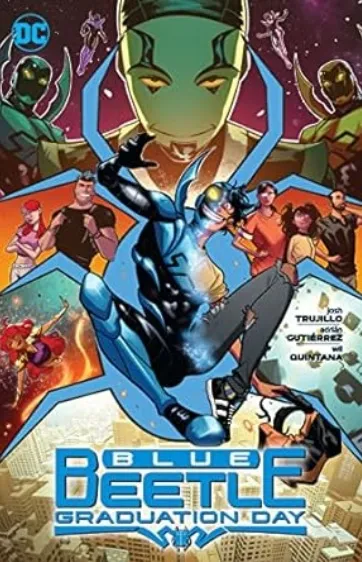
Nostalgia in Comics: Can It Be Done Right?
When people talk about nostalgia and comic books, it’s not always in a flattering way. There are justified complaints about how the dominance of white men in the industry — and the disproportionate weight that DC and Marvel give to the opinions of older, white, male fans — leads to stagnation and the sidelining of characters, creators, and ideas that could make comic books a more welcoming, inclusive — and, frankly, interesting — medium.
This obsession over nostalgia is how you get a bazillion movies about Batman, Spider-Man, and Wolverine while shamelessly ignoring everyone else. (I am totally not bitter about Days of Future Past.) It’s how you get guys like Barry Allen coming back from the dead; even though he was gone for decades, his story had a satisfying end, and most fans were perfectly happy with the characters who had arisen to carry on his legacy.
The problem with nostalgia in comics is that there’s a certain subsection of the fandom that wants things to be exactly the same as they were decades ago. Their rose-tinted memories tell them that the comics they read as children were so much better and purer than the stuff we get nowadays. Instead of being happy to sit with those memories or reread old stories, they want to impose their vision of a “perfect” comic on the rest of us and never, ever let characters grow and evolve. Worse, they sometimes resort to bullying and belittling anyone who disagrees with or gets in the way of that vision, as we see with the Comicsgate “movement.”
I’m just saying, there is a Marvel villain that explains why this thinking is bad.
But is all nostalgia evil? Of course not! For instance, take Justice League International (take them, please!).
Justice League International was an extremely goofy line-up from the mid-to-late 1980s featuring lesser-known heroes. Folks like Ted Kord (AKA the second Blue Beetle), Fire, Ice, and other entertaining but underappreciated characters had their day in the sun before once again being overshadowed by the Big Three. But no more! Thanks to the power of nostalgia, these characters are getting a much-deserved second life.
Fire & Ice: Welcome to Smallville has our titular heroes gal-palling their way around Superman’s hometown and trying to figure out how (or if) they fit into the larger hero community. They even bring L-Ron, an old robot buddy from the JLI days, along for the ride, which is sure to elicit delighted squeals from fans (I’m speaking from experience here). It’s a lighthearted, joyous series about friendship, second chances, and cannibalism that I strongly recommend, whether or not you’ve ever picked up a comic with these characters before.
Ted Kord has also made a remarkable comeback, given that he was shot dead twenty years ago. Aside from costarring in Blue & Gold, a miniseries that is cut from the same ridiculous cloth as JLI, he has become a supporting character for the third Blue Beetle, Jaime Reyes. Blue Beetle: Graduation Day and the subsequent, ongoing Blue Beetle series both have Ted helping Jaime adjust to life in Palmera City and fight the various bad guys he encounters there.
Series like these capture the spirit and tone that I love so much without completely obliterating continuity in an attempt to recreate the classic days of Justice League International (which we should not want, both because that is not fair to newer fans and because that series is now dated as anything).
I think another reason this sort of nostalgia works is because it fills in gaps left by the original material. Unlike watching the Waynes get shot for the fourth or fifth time, we get to dig deep into the characters’ relationships and backgrounds in whole new ways. We see creators like Josh Trujillo and Natacha Bustos — creators who aren’t just straight, white men — get an overdue chance to explore the full breadth of DC’s playground. These creators, in turn, have added diverse new characters to the heroes’ world (Jaime lives with his lesbian aunts; Fire’s latest crush is disabled). And we give characters like Ted Kord a second chance after being controversially killed off for shock value.
In short, yes, comic book fans (and some creators) too often use nostalgia as a cudgel, but that doesn’t mean it has to be the industry’s kryptonite. When deployed in the right way, nostalgia can keep veteran fans like me happy while also attracting fresh new readers who will come to love these characters as much as I do. And isn’t that what we’re all here for, to love these characters?
Anyway, please give me a series about Rocket Red, DC. It’s the logical next step!

